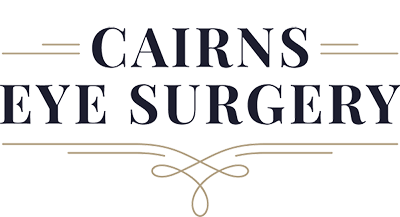DRY EYE SYNDROME/MGD
(07) 4081 3000
Address
Cairns Clinic: 77 Woodward St, Edge Hill
Innisfail Clinic: Innisfail Hospital
Opening Hours
Monday – Thursday: 8am - 5pm
Friday: 8am - 3pm
Saturday-Sunday: Closed
Closed on Public Holidays
For after hours emergencies ring Cairns Hospital on (07) 4226 0000
In a healthy eye, our tears clean and lubricate the surface of the eye. Every time we blink, a fresh layer of tears, called the tear film, spreads over the eye.
The tear film is important for keeping the eye moist and comfortable. Sometimes, the eye may stop producing enough tears . This common and often chronic condition is referred to as Dry eye syndrome. If the oil glands reduce in number or don’t pump good quality oils, the tears evaporate too quickly. This is called Meibomian gland disease (MGD).
It affects your quality of life!
People with dry eye syndrome may experience irritated, gritty, scratchy, or burning eyes, excess watering, and blurred vision. The level of discomfort is increased if you wear contact lenses or live in a dry climate. Paying attention to dry eye symptoms is important. If left untreated it may become so severe that it interferes with work and normal life activities.
Causes
Life style – staring at computer screens, televisions, or electronic readers for long periods of time, exposure to air conditioning, wind, smoke, and dry climates
Age – dry eye syndrome often gets worse as we age
Gender – women are more likely to develop dry eyes
Other factors – long term use of contact lenses, refractive eye surgery, some medications, medical conditions, such as, rheumatoid arthritis, diabetes, thyroid problems and inflammation of the eyelids
Diagnosis
The first step in resolving your dry eye condition is to obtain an accurate diagnosis.
An assessment of the amount and quality of your tears and an examination of the eye surface are conducted.
We utilise an OCULUS Keratograph 5M to examine your eyes.
The Keratograph 5M has a high resolution colour camera and is equipped with intelligent software to analyse the collected data and document the findings.
In the JENVIS Dry Eye Report, we can also compare the results and show the success of the dry eye treatment.
Once the nature of your specific dry eye syndrome and meibomian gland dysfunction have been confirmed, a tailor-made program can be developed that suits your personal situation.
There are a variety of treatment options that we can provide within the practice or as in-home options.
Treatment
IPL (intense pulsed light) therapy
This treatment uses a special device called an Eye-Light to quickly but effectively treat Meibomian gland dysfunction.
The Eye-Light is not a laser, and uses light in a very safe and scientifically tested manner. If it is found necessary to help resolve your condition, we may recommend a short course of
treatments with this method.
LLLT (Low Level Light Therapy)
This heat mask using light is effective in treating both upper and lower eyelids.
Moist heat therapy –
This treatment can be done in the practice, with the Blephasteam system using a combination of warmth and moisture to treat the eyelids, and restore the function of meibomian glands.
Meibomian gland expression –
This is a simple therapy to open the glands in your lower eyelid if they have become blocked. It is conducted using special instruments that are non-sharp and safe.
It is more effective after light or heat therapy.
Meibomian gland expression – this is a simple therapy to open the glands in your lower eyelid if they have become blocked. It is conducted using special instruments that are non-sharp and safe. It is more effective after light or heat therapy.
TREATMENT YOU CAN USE AT HOME
We can also provide you with a range of options to treat your condition at home, and maintain your eye health over the long term.
Drops
Systane Balance / Ultra Hyloforte or Blink intensive
Omega 3
eg Dry Eye Forte or Fish oil
D.E.R.M.
Mask is a useful product for many dry eye sufferers. It contains silica beads which release moisture when heated in your microwave according to the instructions provided. Wearing the warmed mask with a cotton liner for 7-9 minutes provides effective relief.
You don’t have to put up with the discomfort of dry eyes any longer!
